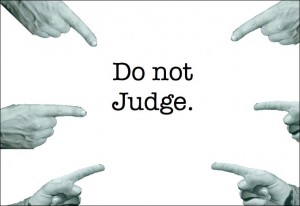The Church is supposed to be a mystery form of the Kingdom of Heaven on earth. I think the parable of the fishing net is specifically referring to this.  Jesus instructed the disciples to follow Him and he would make them great executives of large corporations! No, wait, that’s not right. He told them He would make them fishermen. He wanted them to fish for men. Fishing in Jesus day was done with nets. We saw a sample of that when we were at the Sea of Galilee in Israel a couple of years ago. Jesus uses the illustration of fishing to teach us about the kingdom of heaven. In Matthew 13:47-50, He says “The kingdom of heaven is like a net that was cast into the sea that caught all kinds of fish. When it was full, they pulled it ashore, sat down, and put the good fish into containers and threw the bad away. It will be this way at the end of the age. Angels will come and separate the evil from the righteous and throw them into the fiery furnace, where there will be weeping and gnashing of teeth.”
Jesus instructed the disciples to follow Him and he would make them great executives of large corporations! No, wait, that’s not right. He told them He would make them fishermen. He wanted them to fish for men. Fishing in Jesus day was done with nets. We saw a sample of that when we were at the Sea of Galilee in Israel a couple of years ago. Jesus uses the illustration of fishing to teach us about the kingdom of heaven. In Matthew 13:47-50, He says “The kingdom of heaven is like a net that was cast into the sea that caught all kinds of fish. When it was full, they pulled it ashore, sat down, and put the good fish into containers and threw the bad away. It will be this way at the end of the age. Angels will come and separate the evil from the righteous and throw them into the fiery furnace, where there will be weeping and gnashing of teeth.”
There are (at least!) two lessons that we glean from this parable. First, when you cast a net into the sea you never know what you’re going to get. In the mystery form of the kingdom today, we have many who say “Lord, Lord,” but are really not part of the family of God. But we’ll never be able to tell who they are. It’s not even our place to judge others. Jesus frequently charges us to judge ourselves, but we’re not to judge others with reference to the sincerity of their profession. Thus, in the church today, God’s Mystery Form of His Kingdom, there are both good and bad fish. There are both evil and righteous residents. In another parable about the kingdom we read there are both wheat and tares and they should be allowed to grow together. We’re not to attempt to root them out, but rather coexist with them until “the end of the age.”
We are not to judge because there is no way we would ever be able to know a person’s heart. How could we determine the degree of a person’s guilt or innocence when Jesus made secret sins and hidden habits just as sinful as overt acts? We could never and should never presume to judge a person’s relationship with God unless we have lived sinless lives ourselves. It is also impossible for us to be completely impartial. We all have been infected with the sinfulness of self-interest and we often cannot help but spin things from our perspective. Only God can judge. Barclay concludes his discussion on this subject by saying, “But it was Jesus who stated the supreme reason why we should not judge others. No man is good enough to judge any other man. Jesus drew a vivid picture of a man with a plank in his own eye trying to extract a speck of dust from someone else’s eye.” I’ll discuss the 2nd lesson tomorrow.